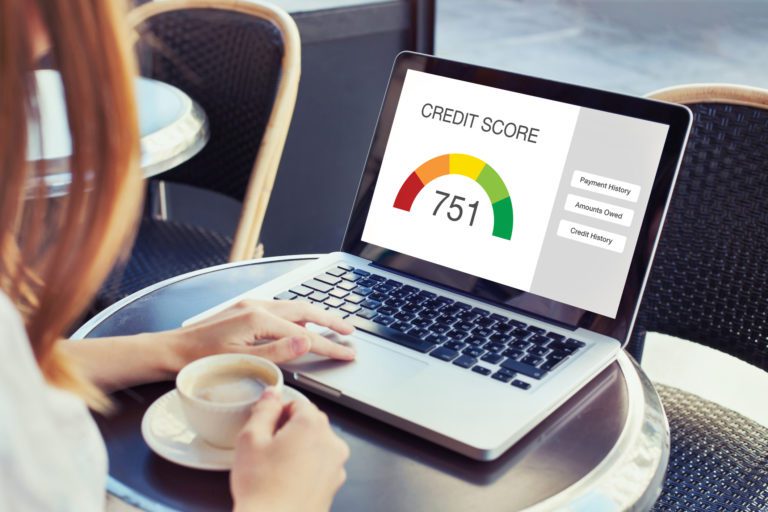Credit is an incredibly important factor of your financial health, but many of us shy away from looking at it, talking about it, or maintaining it. Don’t let this be you! Whether you’re new to credit, looking to fix it, or need to discuss credit with your children, the following advice is for you.
What is credit?
Let’s start at the very beginning—what is credit? According to Experian (one of the three credit bureaus of the country), credit is the ability to borrow money with the understanding that you’ll pay it back later. Credit can be in the form of credit cards, retail credit cards, personal or vehicle loans, student loans, mortgages, service credit and more.
Did you know? 79% of Americans have at least one credit card in 2020.
What’s a credit score?
A credit score is how you’re graded on your “credit worthiness.” This will determine from whom you’ll be able to receive credit, how much money you’ll be able to borrow, and details such as your interest rates. For a more thorough look into credit scores, check out our blog What is a Credit Score and How Can it Help Me?
Who needs to know about credit?
Everyone needs to know about credit! Children will benefit from learning about money basics with the understanding that credit is not “free” money, as many children seem to believe. Teens should learn about credit before or around the time they begin their first job or head off to college as they may need to apply for a vehicle or student loan. Adults need to be familiar with credit as it affects their ability to apply for a mortgage, for example.
Did you know? You can “freeze” your credit to discourage scammers, fraud, and identity theft by contacting all three credit reporting companies, Equifax, Experian, and TransUnion and requesting a “freeze.”
What affects credit?
There are several factors that can affect your credit both positively and negatively. To name a few that weigh on your score include:
- Debts such as medical bills, car payments, utility bills, student loans and mortgages—all your debts are combined and compared with your income to determine borrowing ability
- Age of accounts as in the longer they’ve been opened (the older they are), the more stable and reliable of a borrower you look like
- Number of accounts in that too many accounts make you seem like a risky borrower, while only opening accounts you need make you a more responsible borrower.
How can I improve a bad credit score and maintain a good credit score?
If you’re looking to improve your credit score, be mindful that it takes time, patience, and consistency. If you see any “fix credit quick” messages online, it is a scam. When improving your credit, slow and steady wins the high score. Start here:
- Determine your current debts and budget, avoid spending more than you earn
- Avoid opening more credit lines to pay debt
- Pay down balances with high interest first
- Continue to make every payment on time, every time
If you’re looking to maintain a good credit score, keep these in mind:
- Pay more than the minimum amount due, paying the entire balance is best
- Check it often for mistakes or fraudulent activity
- Keep credit utilization low by avoiding credit limits
- Avoid closing old accounts—they help your credit age
How can I explain credit to my kids and teens?
What children and teenagers learn about money in their childhood will affect them into their adult years. Start early by teaching young children money basics (check out our KidsPlus program.) and that despite how it may seem, credit cards are not free money!
When talking with teenagers about credit and credit cards, it’s essential that they’re familiar with the following:
- Managing their own money
- How to create a budget
- Balancing a checking account
- Understand how interest works
Teenagers and younger children must be diligent and responsible not only with their money, but with the potential dangers of entering their personal information online. When discussing credit with your children, it’s also necessary to discuss scams, fraudulent activity, and the possibility of identity theft.
With “Get Smart About Your Credit Day” approaching this year on Thursday, October 21, we hope that you take the time to brush up on credit management and make a plan to support your credit health.
Sources: MoneyUnder30, Consumer Finance, The Balance, Experian,
https://www.moneyunder30.com/credit-repair
https://www.consumerfinance.gov/ask-cfpb/how-do-i-get-and-keep-a-good-credit-score-en-318/
https://www.thebalance.com/teach-your-child-about-credit-cards-960193
https://www.experian.com/blogs/ask-experian/credit-education/faqs/what-is-credit/

